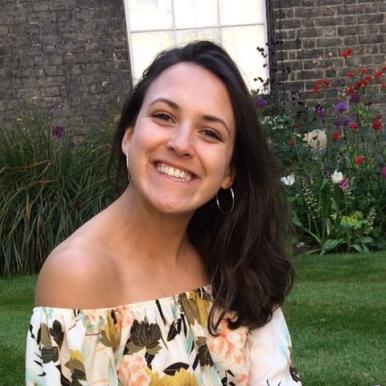History
- History at Corpus Fact File
-
Typical offer: A*AA in A Levels (or equivalent)
Required subjects: History
Typical number of History undergraduates admitted per year: 5-8
Submitted written work requirements: See our Written Work webpage
Admissions assessment: No assessment
- History at Cambridge
-
The History course has three parallel teaching strands: historical knowledge, historical thinking (historiography), and engagement with primary sources. Each of these strands is represented by a category of paper that you take each year.
- Outlines - Over the three-year course these offer an increasingly in-depth viewpoint on a particular time or place. The range of areas covered is very broad and there is something to suit all tastes, from ancient to twentieth-century history, from East Asia to Europe to North America, from the environment and the economy to museums, bodies and machines.
- Historical Thinking - This introduces you to the wide range of theories about how to write history and what the implications of particular approaches are - for example, the way women's history has restored voices missing from the historical record.
- Sources - Hands on experience of studying primary sources of all kinds through the year I Sources paper, the year II Research Project, and the year III Dissertation.
Within College, you receive in-house teaching in the form of one-to-one supervisions, as well as the classes held for your first Historial Thinking paper.
For more information about the History course at Cambridge, visit the University website.
- Why study History at Corpus?
-
The study of History has always been important here at Corpus. Our world famous Parker Library began with a unique collection of books and manuscripts compiled by Matthew Parker, sixteenth-century Archbishop of Canterbury and former College Master. Among the collection are priceless early English manuscripts, as well as the St Augustine Gospels, which have been awarded World Heritage status by UNESCO and recently featured at the coronation of King Charles III.
The number of historians at Corpus. Today the College has become a centre of teaching in world, economic, and medieval history, along with the history of politics, material culture, science and medicine. There is a large and lively student cohort ranging across History and its related degrees, History and Politics and History and Modern Languages.
The College History Society holds regular events through the year with guest speakers, culminating in a garden party at the end of the academic year.
- What do we look for in applicants?
-
If you have an enquiring mind, are interested in the subject beyond the confines of the A-Level syllabus, and can think outside the box, you're the kind the person who will thrive on the History course at Cambridge. The course is challenging but rewarding, if History is your passion! We are always excited to see students who have read beyond what they've been taught to gain a better understanding of historical problems, and who are interested in historical critique and informed debate.
- Super-curricular resources
-
- First and foremost we encourage students to read widely in their areas of historical interest before making an application.
- Essay competitions are a good way to develop your historical interests and structure your super-curricular reading.
- HE+ have some good resources for prospective applicants who want to explore history outside the school curriculum.
- The BBC have some excellent history and history-related podcasts such as The History of the World in 100 Objects and In Our Time.
- Our History Subject Masterclasses are a good way to discover new areas of historical interests.


